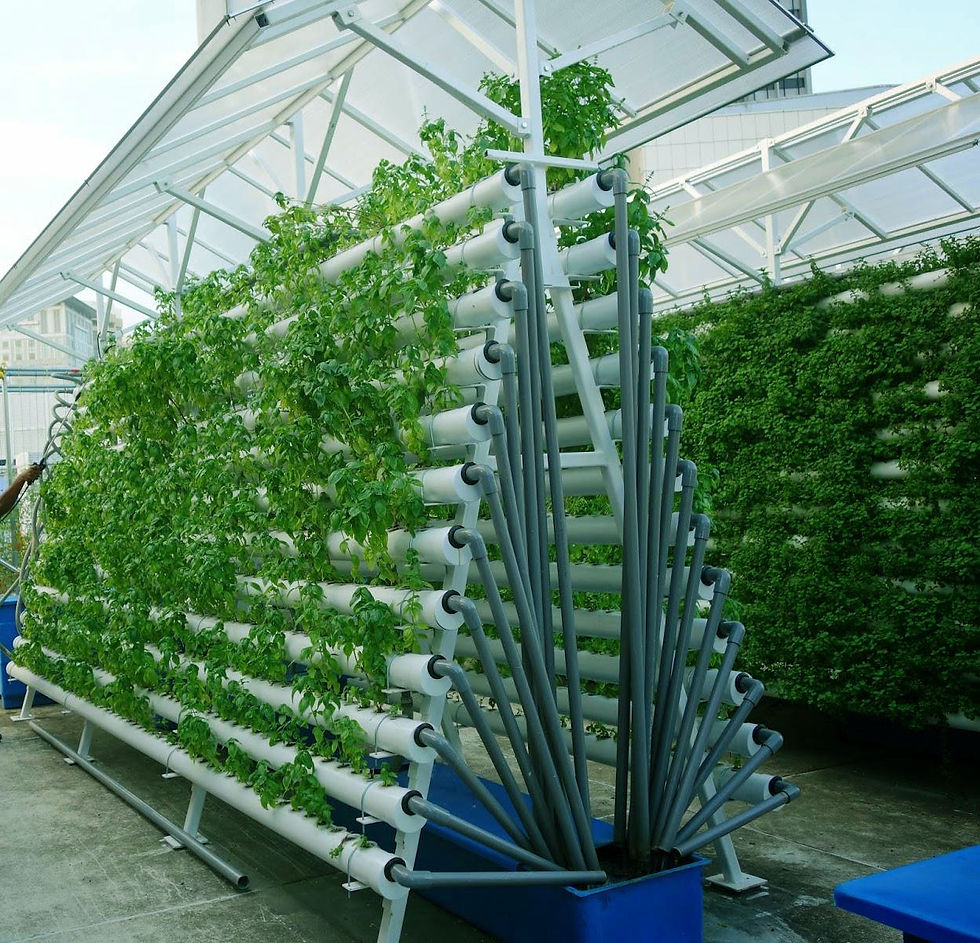Why Hydroponic Is New Norm to Grow Vegetables in 2022?
- Atit Dave

- May 31, 2022
- 3 min read
Hydroponics is the art of growing plants without soil. Hydroponic Adelaide gardening is gaining popularity worldwide, and it is becoming a trend to grow hydroponic plants in homes and offices. Here are a few reasons why hydroponic gardening is becoming popular day by day.
Hydroponics Gives Controlled environment
Hydroponics is a system or method of growing plants without soil. The roots of the plant are grown in an artificial substrate that provides all the nutrients required for growth. Hydroponically grown crops are generally healthier than traditionally grown crops because they aren't exposed to diseases like "damping off." Damping-off is caused by pathogenic fungi that thrive in soils containing waterlogged organic matter. The fungi can infect young seedlings and cause them to rot at their base, preventing further development of the plant stem and leading to its death. In addition, hydroponic systems don't require any soil amendments such as fertilizers or pesticides—so there's no chance that anything toxic will find its way into your food supply when you eat your fresh crop!

Hydroponics saves water
When growing plants in soil, you need water to keep the soil moist. When a plant is getting all of its nutrients through its roots and not in the soil, it uses less water. This saves you money on your utility bills and also reduces waste.
Every year, Americans consume more than 50 million pounds of meat each day, according to Meat Atlas by Euromonitor International Limited. An average adult male requires about 2,200 calories each day, while an average female adult requires 1,800 calories daily. As you can see from this graph, there are many ways that we waste food on a daily basis here in America. Lessen the risk of soil contamination in hydroponic systems. The soil in which you grow your veggies is a rich environment, which can be great for your plants but also has the potential for contamination. There are many contaminants that can get into the soil, including bacteria, fungi, pathogens (disease-causing organisms), pesticides and herbicides, heavy metals, and salts.
Hydroponic systems are less likely to be contaminated with these substances because they don't use any soil at all—instead of growing in dirt or potting mix, they're suspended above water or nutrient solution. This reduces the risk of exposure to harmful substances like heavy metals or radioactive particles: when you grow hydroponically, there's no chance of ingesting these toxic materials!
Facilitates a micro-climate
A microclimate is a local climate within a larger area, such as the climate of your backyard. A Hydroponic Adelaide system creates a microclimate for your plants, which has both benefits for the plants and for you as the grower.
Plants benefit from the controlled environment of their microclimate because it can be manipulated to meet their needs. For example, if you live in an area with low temperatures during winter and want to grow tomatoes year-round, you can create a heated environment that mimics spring weather. This might not be possible if you were growing those same tomatoes outside in warm summer months because they would be exposed to higher temperatures than what they're used to and would likely wilt or die due to stress on their systems. By using controlled lighting and heating systems inside your home or greenhouse (or even just inside flower pots), you're able to keep them at optimal levels throughout every season without worrying about temperature fluctuations hurting them too much during certain times of the year!
The second benefit of creating this type of environment is that it helps save money while growing plants indoors instead of outdoors--you won't have any additional costs associated with things like soil amendments (which tend not to be necessary when using hydroponics) or water conservation efforts (because there aren't any!). It also allows users who might otherwise struggle financially due to lack thereof access to more affordable ways where everyone else doesn't have these kinds of problems."
Conclusion
Hydroponic Adelaide has the potential to revolutionize modern agriculture. These systems are capable of producing more food at a lower cost and with fewer resources than traditional agricultural methods. The benefits are many and include saving water and lessening the risk of soil contamination in hydroponic systems, as well as providing a controlled growing environment that facilitates excellent quality products every time.

Comments